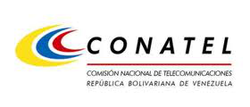Venezuelan regulator of audiovisual (Conatel) had sanctioned the Globovision channel to a very heavy fine. "Tribunal Suprêma del Justice - (TSJ)" decided the freeze of all assets of the company in case of misfeasance, this one paid the fine on June 29, 2012.
http://www.thejournalofregulation.com/spip.php?article1524

The regulator of telecommunications of the Venezuala also controls the television channels. In October 2011, it heavily punished by a fine Globovision channel for how it had reported mutiny. The company has not paid the fine. Seized by the regulator, the Supreme Court of justice ordered the freeze of assets of the company for $ 5.6 million as long as execution would not be made. The following day, June 29, 2012, the fine was paid. It is not sure that democracy has its account.
© thejournalofregulation
In Venezuela, et Act of 2010 strengthened the power of the State on the media, by the means of the regulator, the "Comision National de Telecommunications - CONATEL" (National Telecommunications Commission). In October 2011, the regulator sentenced a television channel, Globovision, for what it regarded as the failure of the rules of the information in the manner in which it recounted a mutiny with left 30 people dead in June 2011, to a fine which amounts to $ 2.16 million.
The television channel, that happens to be the main opposition channel to the Government of the day did not implemented the decision and did not paid the fine.
As a result, the judicial court has been seized, namely the "Tribunal Suprêma del Justice" - (TSJ - The Supreme Court). By judgment of 28 June 2012, has decided that for lack of payment of a fine, 5.6 million of assets of the channel would be frozen. The decision is accompanied by an immediate execution. The day after the decision, channel’s managing directors have paid the fine, protesting against coercion exerted in their view institutions for the benefit ofan unjust decision.
We here measure the difficulties caused by a regulatory system while the system into which it is inserted is not an obvious way rule of law.
This is true in general for any institution with a policy-making, it is even more for a regulator which is substantially independent and much more, as in the media field, intended to be the protector of of public liberties.
We will be here appreciates the fact that the information for which the penalty was imposed was political (mutiny) and not, as in the case that comes examine the Supreme Court of the United States, a case of skin slightly unveiled in a soap opera.
In addition, we measure here more technically the power of implementation. Indeed, through the issue of financial performance, namely the payment of fines, due to the amount of the asset freeze, significantly higher that the amount of the fine itself already very high, it is actually like the channel’s managing directors pointed out that the ability to issue that is questioned. This is how the de jure power to impose fines becomes de facto power to remove the right to issue. In a system where democracy is fragile, the passage from one to the other is worrying.

votre commentaire